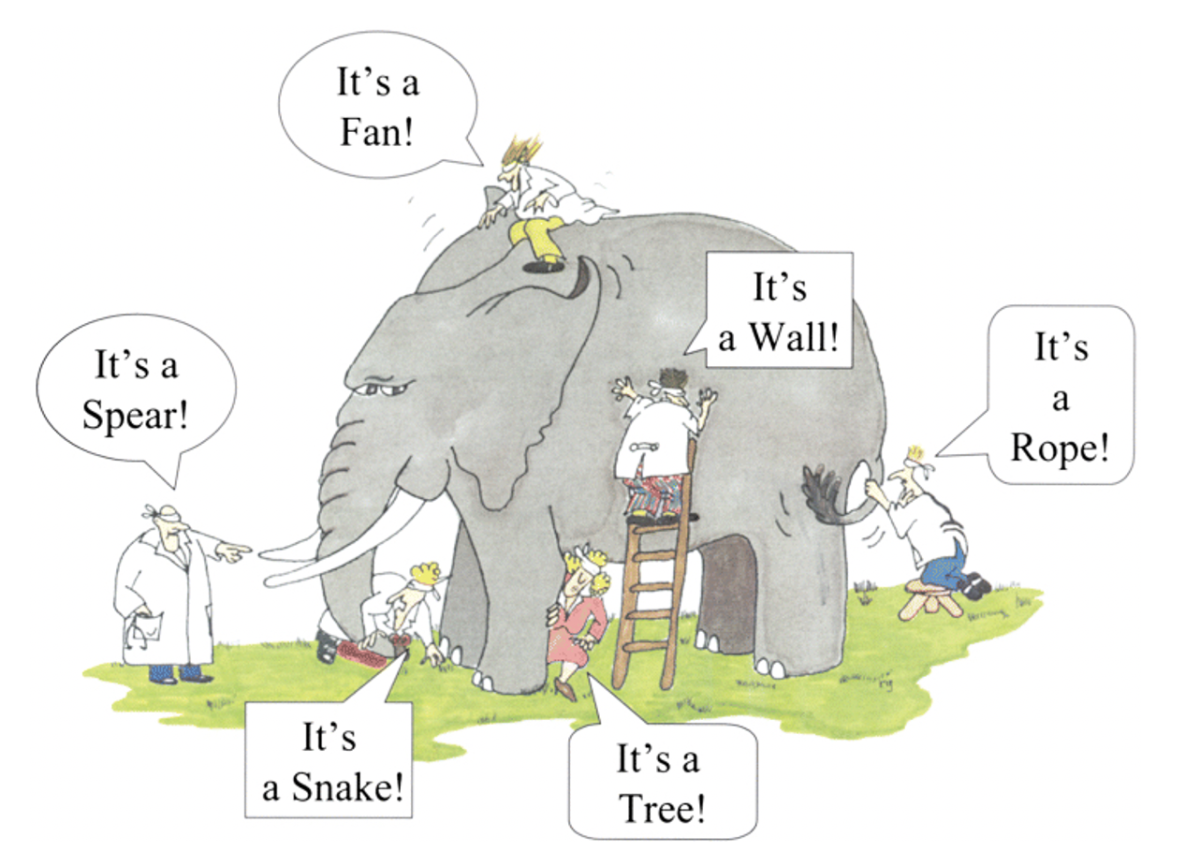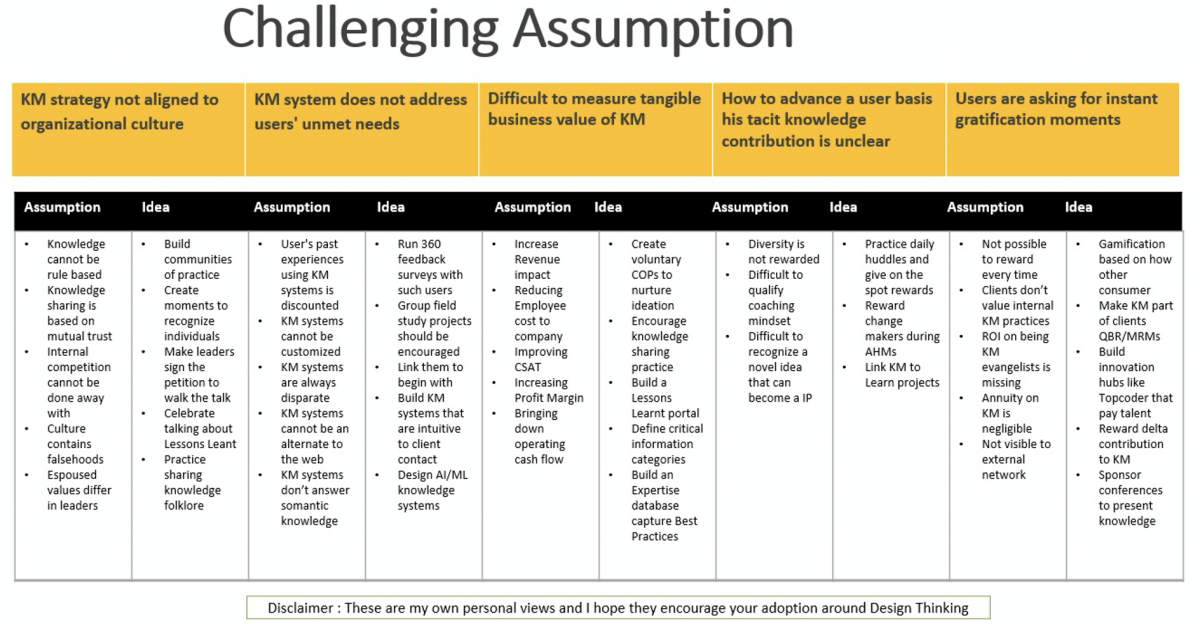...
How would you like to be a Guest Blogger for KMI? Email us at: info@kminstitute.org and let us know your topic(s)!
Has KM Shown You the Mirror?
 Each of us growing up has heard the famous story of the "Six blind men and an elephant". The moral of the story is that humans tend to claim absolute truth based on their limited, subjective experience as they ignore other people's limited, subjective experiences which may be equally true.
Each of us growing up has heard the famous story of the "Six blind men and an elephant". The moral of the story is that humans tend to claim absolute truth based on their limited, subjective experience as they ignore other people's limited, subjective experiences which may be equally true.

Doesn't this sound relatable to you?
Spear: 'The Leader' finds it difficult to measure tangible business value of KM.
Rope: 'The Champion' is unclear on how to advance a user basis the tacit knowledge.
Snake: 'The HR' feel that the KM strategy is not aligned to organizational culture.
Tree: 'The KM Team' must provide instant gratification moments each time.
Wall: 'The Users' say that the KM system does not address their unmet needs.
There is a problem; we can see that! However, most of the time we KM Practitioners fail to get the team together to ensure that we define the same.
The reason is as humans we naturally develop patterns of thinking modeled on repetitive activities and commonly accessed knowledge. These assist us in quickly applying the same actions and knowledge in similar or familiar situations, but they also have the potential to prevent us from quickly and easily accessing or developing new ways of seeing, understanding, and solving problems. These patterns of thinking are often referred to as schemas, which are organized sets of information and relationships between things, actions and thoughts that are stimulated and initiated in the human mind.
As these schemas are stimulated automatically, this can obstruct a more fitting impression of the situation or prevent us from seeing a problem in a way that will enable a new problem-solving strategy.
Design Thinking is an iterative process in which we seek to understand the user, challenge assumptions, and redefine problems to identify alternative strategies and solutions that might not be instantly apparent with our initial level of understanding.
Challenging Assumptions is a sense-making technique designed to break apart a statement and discover where assumptions may be limiting your options.

Looking at the above graphic you can see how new assumptions have come in that help us form innovative ideas and improve our 'selection-mix' to solve a problem.
- Knowledge sharing is based on mutual trust > Create moments to recognize individuals
- Culture contains falsehoods > Celebrate talking about Lessons Leant
- Espoused values differ in leaders > Practice sharing knowledge folklore
- User's past km experiences is discounted > Run 360 feedback surveys with such users
- KM systems do not answer semantic knowledge > Design AI/ML knowledge systems
- Increasing Profit Margin > Define critical information categories
- Bringing down OPEX > Build an Expertise database capture Best Practices
- Difficult to recognize a novel idea that can become an IP > Link KM to Learn projects
- Annuity on KM is negligible > Build innovation hubs like Topcoder that pay talent
- Not visible to external network > Sponsor conferences to present knowledge
In Summary: Knowledge is critical to solving business problems, and as leaders we need to ensure that our business goals are mirrored to defining the most critical problems. However, without exploring Design Thinking principles we would fail to 'Ideate' and prioritize the right issues-at-hand, which could stop us from experiencing the true value of KM.
Disclaimer: This article is based on my own experiences and are my personal views. I hope you enjoyed reading it and this would help you investing in reading more on how KM.
~~~
About the Author: Michael Sequeira is an independent consultant who is passionate about helping organizations discover how KM can be a key differentiator for their business, teams, and clients. If you would like to learn more about his background and get-in-touch you can connect with him on LinkedIn.
Archives
- April 2024 (4)
- March 2024 (4)
- February 2024 (4)
- January 2024 (3)
- December 2023 (2)
- November 2023 (2)
- October 2023 (3)
- September 2023 (3)
- August 2023 (6)
- July 2023 (4)













